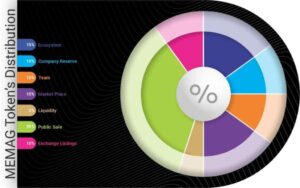
The German economy once hailed as the powerhouse of Europe, finds itself grappling with unexpected challenges as it enters 2024. As indicated by the Ifo Institute’s business climate index, business morale has declined for the second consecutive month in January, dropping to 85.2 from a slightly revised reading of 86.3 in December. This unexpected downturn reflects the persistent struggles of Europe’s largest economy to shake off a recession, casting a shadow over hopes for a swift recovery.
Recessionary Trends and GDP Contractions
In 2023, Germany experienced a contraction in its Gross Domestic Product (GDP) by 0.3%, marking a troubling economic downturn. The tentative optimism witnessed in the autumn months proved to be short-lived, as noted by Clemens Fuest, the president of the Ifo Institute.
Analysts had anticipated a slight improvement in the business climate index for January. Still, the decline to 85.2 underscores the persistent challenges the German economy faces. Carsten Brzeski, an economist at ING, forecasts another shallow recession in 2024, projecting a GDP contraction of -0.3%. These figures highlight the gravity of the situation, pointing to the need for a comprehensive strategy to address the underlying issues.
Inflation, Energy Prices, and Budget Issues
The economic challenges of 2023 were exacerbated by persistently high inflation, soaring energy prices, and weak foreign demand. A budget crisis added to the complexity, leading to deep subsidy cuts and unsettling Germany’s already fragile coalition government. The convergence of these challenges created a perfect storm, hindering the nation’s economic recovery. To regain stability, policymakers must address these interconnected issues, implementing measures that balance economic growth with fiscal responsibility.
Red Sea Houthi Attacks and Export Industry
The closely watched composite Purchasing Managers’ Index (PMI) revealed another concerning trend in January, falling for the seventh consecutive month. The recent Houthi attacks on shipping in the Red Sea have introduced new worries for Germany’s export sector, leading to trade disruptions.
Germany’s economic landscape in 2024 is marked by uncertainties and challenges that demand swift and strategic interventions. As the nation grapples with a recession, high inflation, and external trade disruptions, a holistic approach is necessary to revive business confidence and stimulate sustainable economic growth.
.embed_code iframe { height: 325px !important } .embed_code p { margin-top: 18%; text-align: center; } .embed_code { height: 370px; width: 80%; margin: auto; } .embed_code h2{ font-size: 22px; }- SEO Powered Content & PR Distribution. Get Amplified Today.
- PlatoData.Network Vertical Generative Ai. Empower Yourself. Access Here.
- PlatoAiStream. Web3 Intelligence. Knowledge Amplified. Access Here.
- PlatoESG. Carbon, CleanTech, Energy, Environment, Solar, Waste Management. Access Here.
- PlatoHealth. Biotech and Clinical Trials Intelligence. Access Here.
- Source: https://www.financebrokerage.com/a-closer-look-at-germanys-economic-challenges-in-2024/
- :has
- :is
- ][p
- 2023
- 2024
- a
- added
- address
- already
- an
- and
- Another
- Anticipated
- approach
- AS
- At
- Attacks
- auto
- Balance
- BE
- budget
- business
- business climate
- by
- casting
- Center
- challenges
- Climate
- closely
- closer
- coalition
- complexity
- comprehensive
- concerning
- confidence
- consecutive
- content
- contraction
- Convergence
- created
- crisis
- cuts
- December
- Decline
- deep
- Demand
- disruptions
- Domestic
- DOWNTURN
- Dropping
- Economic
- economic downturn
- Economic growth
- economic recovery
- Economist
- economy
- embedded
- energy
- energy prices
- Enters
- Europe
- Europes
- experienced
- export
- external
- faces
- Falling
- Figures
- finds
- Fiscal
- For
- forecasts
- foreign
- from
- GDP
- German
- German Economy
- Germany
- Government
- grappling
- gravity
- gross
- Growth
- had
- Have
- height
- High
- High inflation
- Highlight
- holistic
- hopes
- HTTPS
- implementing
- improvement
- in
- index
- indicated
- inflation
- ING
- Institute
- interconnected
- interventions
- introduced
- issues
- IT
- ITS
- itself
- January
- jpg
- landscape
- largest
- leading
- Look
- Margin
- marked
- marking
- measures
- Month
- months
- must
- nation
- Nations
- necessary
- Need
- New
- news
- noted
- of
- off
- on
- once
- Optimism
- over
- perfect
- persistently
- plato
- Plato Data Intelligence
- PlatoData
- player
- pmi
- policymakers
- powerhouse
- president
- Prices
- Product
- proved
- purchasing
- Reading
- recent
- recession
- recovery
- Red
- reflects
- regain
- responsibility
- Revealed
- Revive
- s
- SEA
- Second
- sector
- Shadow
- shallow
- Shipping
- situation
- soaring
- Stability
- Still
- stimulate
- Storm
- Strategic
- Strategy
- Struggles
- subsidy
- SUMMARY
- sustainable
- SWIFT
- that
- The
- These
- this
- to
- trade
- Trend
- Trends
- troubling
- uncertainties
- underlying
- underscores
- Unexpected
- Video
- weekly
- were
- with
- witnessed
- youtube
- zephyrnet












